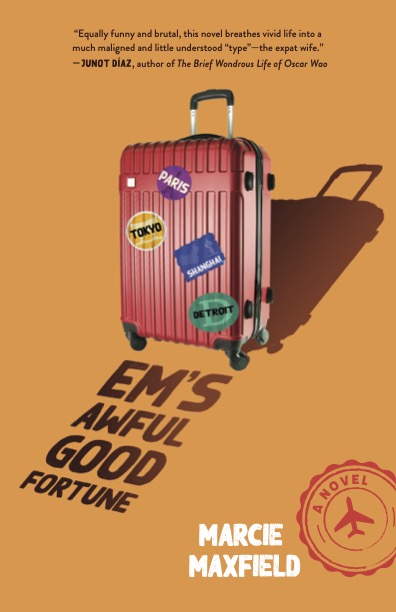My family has moved around a lot for my husband’s job. We try to focus on what we stand to gain — usually, it’s financial.
But, inevitably, you always lose things in a move. Some of it is just stuff — books and kitchen gadgets — but some of it is more ephemeral. Things you can’t hold in your hand or pack in a box. Things like identity, community, career, and financial independence.
I’ve spent some time mired in this sense of loss; believe me, it’s not a place you want to dwell indefinitely. My new novel, Em’s Awful Good Fortune, based on my life as a trailing spouse, explores the struggles and compromises between personal goals and family needs.
Ultimately, it’s a story about redefining oneself.
Prior to becoming a trailing spouse, I had an impressive career in public relations and marketing, working for ABC-Radio, Sony Music, and BAM (a California rock-and-roll publication). Music was my passion, and I felt fortunate to be able to work in “the biz.” My husband ran lights and sound for concerts, fashion shows and the occasional Vegas attraction. We were a hipster L.A. couple with a baby.
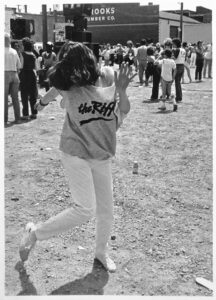
Like many Angelenos, however, neither of us was actually from Los Angeles; I’m originally from Detroit and Richard is from Boston. We “met cute” on the ferry from Boston to P-Town. A month later, on a whim, he moved to Los Angeles. (That should have been my first clue that there would be no tying this guy down!)
After several years in a long-distance relationship, I made the big move to Los Angeles and we got married — which I thought meant we would settle down and establish roots in California.
But then, Richard’s career took off — literally, across Asia and Europe — as he became an international show producer for expos, cruise ships and theme parks like Lotte World in Seoul, South Korea. Gigs that lasted anywhere from six months to four years.
Between the rock and a hard place
The first time my husband moved overseas, to Osaka, Japan, I chose to stay behind for my magazine job in California. It seemed like a smart, sensible, independent decision. But, it backfired. Being a mom with a full-time job, a baby and an absentee husband was too much to handle. That year, living apart, was exhausting. I was angry, and our relationship was cracking from stress. At some point, I had to choose between my fraying marriage and career.
I chose the marriage.
The next time Richard was offered an overseas gig, we all tagged along: our toddler, the new baby and me.
We arrived in Daejeon, S. Korea, in the mid-nineties. At the time, Daejeon was a farm town on the cusp of becoming a government and science center. It was common to build expos in small towns with lots of open space — and no expat community.
My husband worked long hours six days a week — leaving us alone for breakfast, lunch, dinner, playtime, bath time and bedtime. No friends, no “Mommy and Me” groups, no girls’ nights out. Just me and two young kids. Once again, I was angry and our relationship was stressed. Was his lifestyle fundamentally incompatible with my life?
It got easier when we moved to Seoul where I could tap into the expat community. Once I made some friends, we were all happier; a happy partner is key in successful relocations.
Sad goodbyes, professionally and personally
I’m not going to sugarcoat it: being a trailing spouse killed my marketing career — among other things.
To be fair, my resume survived that first overseas post. After a year and a half in South Korea, I came back to L.A., fudged some dates on my job application and was hired to do marketing for the L.A. Zoo. I adjusted to losing my foothold in the music industry by telling myself that, with two young kids, my rockin’ career would have phased out anyway.
Our subsequent years in France, however, became an insurmountable gap. After that relocation, I was lucky to get a job anywhere. Only people who already knew me and were familiar with my professional skills would hire me — and they got me on the cheap. My career trajectory had been derailed.
During our first year in Paris, our dog’s unhappiness mirrored our family’s relocation struggles. Mikey did not acclimate to city living and, we soon discovered, he was terrified of rain (something you don’t get much of in Southern California). One awful day, during a storm, he panicked and jumped out the window of our 4th floor apartment in the Marais. My husband, two kids and I were all brokenhearted.
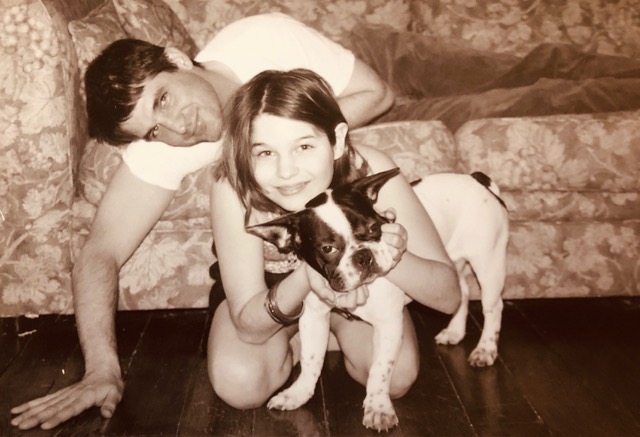
But somehow, we rallied, and our experience in France cultivated my new passion for writing. I took classes through W.I.C.E (Women In Continuing Education), an organization that serves the international expat community, and some of my pieces were published in a French literary journal. My first published story was about how our family had unhappily moved to Paris and our dog committed suicide. It was equally devastating and funny; my willingness to express what lurks beneath the surface, to reveal the brutal and comic truth about being a trailing spouse, was received as authentic, human, and relatable.
A year after Mikey’s death, we adopted a French bulldog from a pet store on the Seine. We found him in the discount bin — he was big, and his ears flopped, so he was no “prize.” It was love at first sight. We named him Raymond Chandler Bing (after my husband’s favorite writer and the kid’s favorite “Friends” character). While some people say, “We’ll always have Paris,” my motto is, “We’ll always have French bulldogs!”
When we moved to Tokyo, we left Chandler in L.A. with my best friend. We missed him terribly, but at least we all survived. It seemed like we had the pet relo thing figured out: leave them back home. But, when we moved to Shanghai a few years ago, we left our new Frenchie at home with our daughter. Big mistake. Cooper felt abandoned and we came home three years later to an angry dog. It took a lot of retraining and reassuring, but we eventually made amends with Cooper.
We’ve had ups and downs with dogs and relocations, and learned some lessons the hard way. Not unlike how moving has impacted our kids. There is no manual. It’s trial and error.
Raising global citizens
In retrospect, moving overseas was a cakewalk when the kids were little — cute, cuddly, portable babies who happily came along for the ride.
I believe it’s important for American kids to understand the world as being bigger than the United States, and that my children are better global citizens as a result of their expat upbringing. We’re only 50-50 on trailing kid satisfaction, however.
Now that they are adults, our son Jordan says he resoundingly appreciates his global upbringing; our daughter Jade strongly resents hers. Transitioning in and out of American and International schools was difficult for both of them, as social and academic standards become even harder to navigate during a “Third Culture Kid’s” teen years.
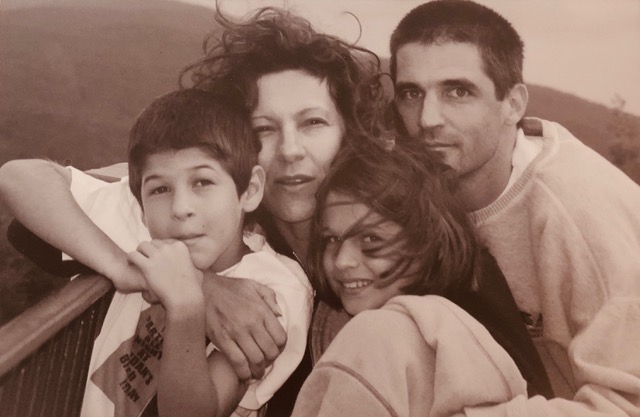
So, when people say it’s GREAT for the kids to live overseas, I say, “Maybe.” Some kids take to moving around, some don’t.
Jade was in preschool when we moved to Korea. As her mom, I knew in my heart that she had been happier in Los Angeles where she had friends and a preschool that she adored. She had a sense of belonging that moving ripped out from under her. I put her in a taekwondo class thinking, It’s physical, she doesn’t need to understand the language, she’ll watch the other kids and pick up the moves. Every day, I dropped her off in the morning — and every day, someone carried her back out crying.
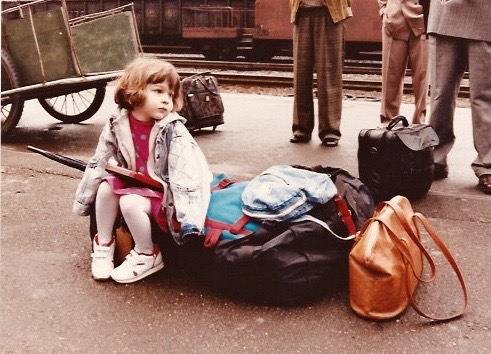
She was much happier when we lived in Paris — but that made coming “home” traumatic. She missed her International School friends, and after four years away, her L.A. crowd had moved on. She felt alone.
A few years later, when we pulled her out of high school in 11th grade for our move to Tokyo, it was against her will. Jade begged us to let her stay and live with a friend’s family, but we insisted she come with us, to keep our family together. She rebelled by flunking all of her classes. Forcing our teenage daughter to move to Japan was, hands down, the biggest parenting mistake we made. Years later, she still resents us for dragging her to Tokyo in 11th grade — even though she made friends, had a blast partying in Roppongi, and did not miss the Junior Prom experience!
Jordan, now a snarky adult, sums up our serial expat experience as his father’s “blithe and drunken tendency to man-of-action the family off a cliff.”
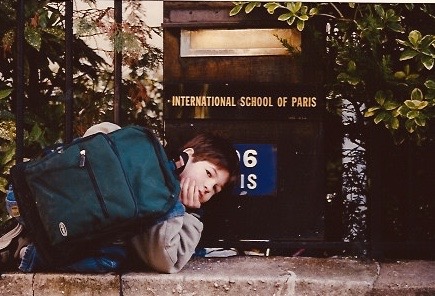
On the positive side, I believe their international upbringing has contributed to my children becoming open-minded young adults. As Americans who have lived abroad, they are completely at ease in any community, and have each developed a diverse group of friends. I’m immensely proud of the humans they’ve become. And, most importantly, the four of us have an unusually strong family bond, one that was forged in isolation, as global nomads. For that, I will forever be grateful.
Our most successful relocation
Perhaps our most successful relocation was the three years my husband and I spent in Shanghai, China. The kids were relatively independent and I was no longer attached to my marketing career. While there, I wrote a series of monologues about ‘growing up girl’ in America that eventually became an award-winning play at the Hollywood Fringe Festival, called: Girls Together Always.
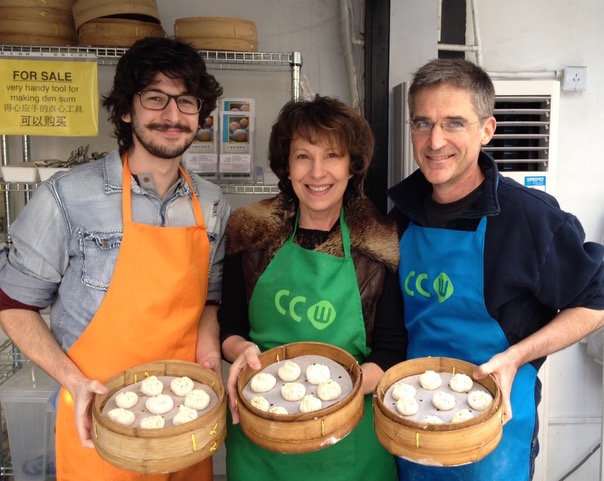
Because of that success, I finally came to see being a trailing spouse as supporting my life goals, rather than disrupting them. I just had to shift perspective — let go of my outdated idea of “career” and lean into my dream of becoming a writer.
Our daughter, then in her twenties, chose to stay in Los Angeles; our son, who was in college, spent his semester breaks in Shanghai. Nobody felt forced into doing anything they didn’t want to do.
Rating our moves
There are so many factors that impact the success of an international post. Here’s how I’d rate our moves (each from our “home base” of Los Angeles) on the Gupte Scale:
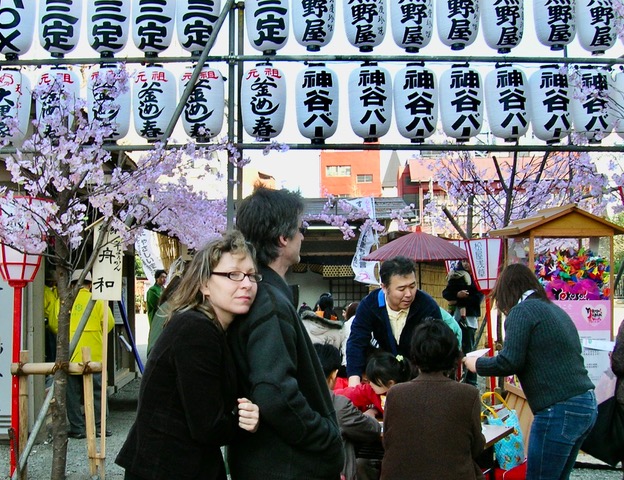
South Korea (1995-1996): S. Korea only ranks a 7/15. And please don’t take this as a slight to Daejeon and Seoul, but the company had no program for spousal support whatsoever and provided no access to international health clinics!
Paris, France (1999-2003): I love Paris but it only rates a 10/15 on the Gupte scale because it was bad timing—right when my marketing career was poised to take off, we moved to Paris for my husband’s job.
Tokyo, Japan (2005-2007): 11/15 because the company resources were abundant — including a life-saving membership at the Tokyo American Club!
Shanghai, China (2013-2016): Tied with Paris at 10/15, which makes sense as both cities are super cool. It was good timing, and there were adequate resources, but the air quality was so bad in Shanghai when we lived there as to make it almost unlivable. I hear that the Chinese have made significant advances towards a cleaner environment, and so, surprise!
Isn’t it ironic?
In an ironic twist of fate, my husband is about to relocate to Shanghai again… and I can’t get a spousal visa! So here I am, in Los Angeles: I’ve just published a novel about the expat experience, and would like nothing better than to move to China and promote my book, but COVID-19 travel restrictions have made it impossible.
But, we’re hoping things will free up in the new year. This time, China would rate a 13/15 for me: the timing is right, the kids are grown, my book (Em’s Awful Good Fortune) is coming out. As soon as China starts giving spousal visas, I’ll be packing my bags. Until then, Richard and I will be in a long-distance relationship — just like we started.
Life doesn’t play out the way you plan it. Adaptability is the key to survival. So, we will make this temporary separation work. Hopefully, we’re better at it now.


